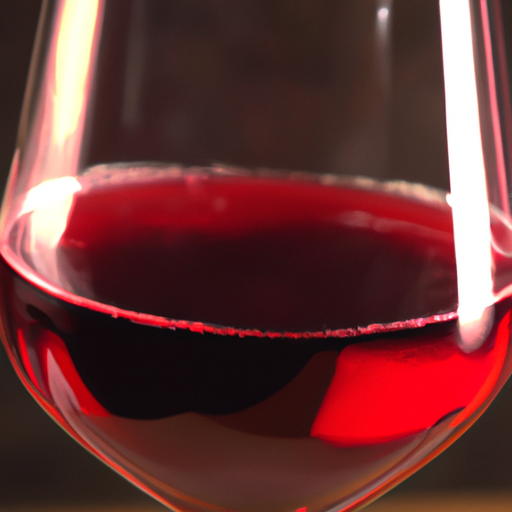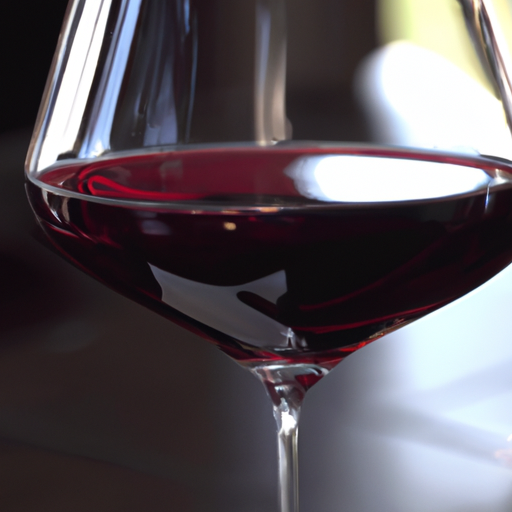
The Evolution of Caroline Frey’s Wine Philosophy
Caroline Frey, a prominent figure in the wine industry, has undergone a significant evolution in her wine philosophy over the years. As the owner and winemaker of Château La Lagune in Bordeaux, France, Frey has had the opportunity to experiment and refine her approach to winemaking. This article will explore the various stages of Frey’s changing perspective on wine and how it has shaped her winemaking style.
Frey’s journey began with a traditional approach to winemaking, heavily influenced by the Bordeaux region’s long-standing winemaking traditions. She initially focused on producing wines that were structured, powerful, and built to age. This style of winemaking emphasized the use of oak barrels, extended maceration periods, and high levels of extraction. Frey believed that these techniques were necessary to create wines that would stand the test of time.
However, as Frey gained more experience and exposure to different winemaking philosophies, her perspective began to shift. She started to question the traditional methods she had been taught and became more open to exploring alternative approaches. This change in mindset was driven by a desire to create wines that were more expressive of their terroir and showcased the unique characteristics of the vineyard.
Frey’s evolving philosophy led her to experiment with organic and biodynamic farming practices. She recognized the importance of sustainable agriculture and the impact it could have on the quality of her wines. By adopting these practices, Frey aimed to create a healthier ecosystem in her vineyards, which would ultimately result in more vibrant and complex wines.
In addition to her focus on sustainable farming, Frey also began to reevaluate her winemaking techniques. She started to move away from the heavy use of oak and extraction, opting for a more minimalist approach instead. This involved using less new oak, shorter maceration periods, and gentler extraction methods. By doing so, Frey aimed to produce wines that were more elegant, balanced, and reflective of their terroir.
Frey’s changing perspective on wine also led her to explore new grape varieties. While Bordeaux is known for its traditional grape varieties such as Cabernet Sauvignon and Merlot, Frey began to experiment with lesser-known varieties that were better suited to her evolving winemaking style. She introduced grapes like Petit Verdot and Cabernet Franc into her blends, adding complexity and depth to her wines.
As Frey continued to refine her approach, her wines started to gain recognition and acclaim. Critics praised her for producing wines that were both approachable in their youth and capable of aging gracefully. Frey’s commitment to sustainable practices and her willingness to challenge traditional winemaking norms set her apart from her peers and established her as a trailblazer in the industry.
In conclusion, Caroline Frey’s changing perspective on wine has been a transformative journey that has shaped her winemaking philosophy. From her early days of adhering to traditional Bordeaux winemaking techniques to her current focus on sustainable practices and minimal intervention, Frey’s evolution has resulted in wines that are expressive, elegant, and reflective of their terroir. Her commitment to pushing boundaries and challenging conventions has solidified her position as a respected and influential figure in the wine industry.
Exploring Caroline Frey’s Innovative Winemaking Techniques

Caroline Frey, a renowned winemaker from France, has been making waves in the wine industry with her innovative winemaking techniques. Over the years, she has developed a unique perspective on wine, constantly pushing the boundaries and challenging traditional practices. In this article, we will explore Caroline Frey’s changing perspective on wine and how it has influenced her winemaking.
Caroline Frey grew up in a family deeply rooted in winemaking. Her parents owned Château La Lagune, a prestigious winery in Bordeaux. From a young age, she was exposed to the art of winemaking and developed a passion for it. However, as she embarked on her own winemaking journey, she realized that there was more to wine than just tradition.
One of the key aspects of Caroline Frey’s changing perspective on wine is her focus on sustainability. She believes that winemaking should be done in harmony with nature, taking into consideration the impact on the environment. This led her to adopt organic and biodynamic farming practices in her vineyards. By eliminating the use of synthetic chemicals and pesticides, she ensures that her wines are not only of high quality but also environmentally friendly.
Another aspect of Caroline Frey’s changing perspective on wine is her emphasis on terroir. Terroir refers to the unique combination of soil, climate, and geography that gives a wine its distinct characteristics. Frey believes that by understanding and respecting the terroir, winemakers can create wines that truly reflect their origins. She meticulously studies the soil composition and microclimates of her vineyards, allowing her to make informed decisions during the winemaking process.
Caroline Frey’s changing perspective on wine also extends to her approach to winemaking itself. She embraces innovation and experimentation, constantly seeking new techniques to enhance the quality of her wines. One example of this is her use of concrete eggs for fermentation. These egg-shaped vessels provide a unique environment for the wine to develop, resulting in wines with enhanced complexity and texture.
Furthermore, Frey has also embraced technology in her winemaking process. She uses state-of-the-art equipment and techniques to monitor and control every aspect of the winemaking process. This allows her to achieve consistency and precision in her wines, ensuring that each bottle is of the highest quality.
Caroline Frey’s changing perspective on wine has not only influenced her own winemaking but has also had a broader impact on the industry. Her commitment to sustainability and terroir-driven winemaking has inspired many other winemakers to follow suit. The focus on organic and biodynamic farming practices has gained traction, with more vineyards adopting these methods.
In conclusion, Caroline Frey’s changing perspective on wine has revolutionized the winemaking industry. Her emphasis on sustainability, terroir, and innovation has set her apart as a visionary winemaker. Through her dedication and passion, she has not only created exceptional wines but has also inspired a new generation of winemakers to think differently about their craft. As the wine industry continues to evolve, it is clear that Caroline Frey’s influence will be felt for years to come.
Caroline Frey’s Impact on the Wine Industry: A Fresh Perspective
Caroline Frey, a prominent figure in the wine industry, has been making waves with her fresh perspective on wine. As the owner and winemaker of Château La Lagune in Bordeaux, France, Frey has been challenging traditional notions and pushing boundaries in the world of winemaking. Her innovative approach and dedication to quality have earned her a reputation as a trailblazer in the industry.
Frey’s journey in the wine industry began at a young age. Growing up in a family of winemakers, she was exposed to the art of winemaking from an early age. However, it wasn’t until she took over the reins at Château La Lagune that she truly began to make her mark. With a deep respect for tradition and a desire to innovate, Frey set out to create wines that would captivate the palates of wine enthusiasts around the world.
One of the key aspects of Frey’s changing perspective on wine is her commitment to sustainable and organic practices. Recognizing the importance of preserving the environment and the health of the vineyards, she has implemented a range of eco-friendly initiatives at Château La Lagune. From using natural fertilizers to practicing integrated pest management, Frey’s dedication to sustainability is evident in every aspect of her winemaking process.
In addition to her focus on sustainability, Frey has also embraced a more minimalist approach to winemaking. Rather than relying on excessive manipulation and intervention, she believes in allowing the grapes to express themselves naturally. This means using native yeasts for fermentation and minimizing the use of additives and chemicals. By taking a step back and letting nature take its course, Frey has been able to create wines that are true reflections of their terroir.
Frey’s changing perspective on wine is also evident in her approach to blending. While Bordeaux wines are traditionally made from a blend of different grape varieties, Frey has been experimenting with single-varietal wines. By showcasing the unique characteristics of each grape variety, she has been able to create wines that are both complex and approachable. This departure from tradition has been met with both praise and criticism, but Frey remains steadfast in her belief that it is important to challenge the status quo.
Another aspect of Frey’s changing perspective on wine is her focus on the consumer. Recognizing that wine can sometimes be intimidating and inaccessible, she has made it her mission to demystify the world of wine. Through educational initiatives and events, she aims to make wine more approachable and enjoyable for everyone. By sharing her knowledge and passion, Frey hopes to inspire a new generation of wine lovers.
In conclusion, Caroline Frey’s changing perspective on wine has had a significant impact on the wine industry. Through her commitment to sustainability, her minimalist approach to winemaking, her experimentation with blending, and her focus on the consumer, she has challenged traditional notions and pushed boundaries. Her fresh perspective has not only resulted in exceptional wines but has also inspired others to think differently about wine. As the wine industry continues to evolve, Frey’s influence will undoubtedly continue to shape its future.






